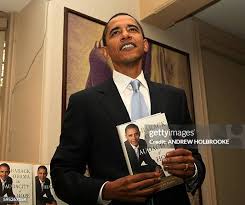The Legacy of Barack Obama: A Comprehensive Overview

Introduction
Barack Obama, the 44th President of the United States, remains one of the most significant figures in American politics. His presidency (2009-2017) not only reshaped the landscape of U.S. policy but also left an indelible mark on global geopolitics. As the first African American to hold the office, Obama’s tenure represents a pivotal moment in the country’s journey towards racial equality and social justice. Understanding his legacy is crucial for comprehending current political dynamics and social movements.
Key Achievements
During his two terms, Obama enacted several key pieces of legislation that aimed to improve the economy, health care system, and international relations. The Affordable Care Act (ACA), often referred to as “Obamacare,” was a landmark achievement, extending health insurance to millions of uninsured Americans. His administration also focused on environmental issues, exemplified by the Clean Power Plan aimed at reducing greenhouse gas emissions.
In the realm of foreign policy, Obama’s efforts to reset U.S.-Cuba relations culminated in a historic visit to Cuba in 2016, marking the first time a sitting U.S. president had visited the island since 1928. Furthermore, he played a crucial role in the multinational agreement with Iran to limit its nuclear programme, though this initiative faced significant criticism and challenges post-presidency.
Challenges Faced
Despite his achievements, Obama’s presidency was not without its hurdles. The country faced significant partisan division, with Republicans often blocking his initiatives. The rise of the Tea Party movement in the early 2010s highlighted these divisions, as did the contentious 2016 election cycle, which saw a backlash against Obama’s policies and the ascent of Donald Trump. Additionally, issues like the handling of the Syrian Civil War and the rise of ISIS marred his foreign policy record.
Conclusion
The significance of Barack Obama’s presidency extends beyond his individual policies; he inspired a generation to engage in civic participation and advocate for change. As America continues to navigate challenges related to healthcare, race relations, and global standing, the lessons from Obama’s legacy remain relevant. His focus on hope and progress encourages a collective approach to solving the nation’s most pressing issues, reinforcing the idea that leadership can drive transformative change.
In reflection, while views on Obama’s presidency may differ, its impact on American society and politics is undeniable, rendering him a crucial figure for future generations to study and understand.









